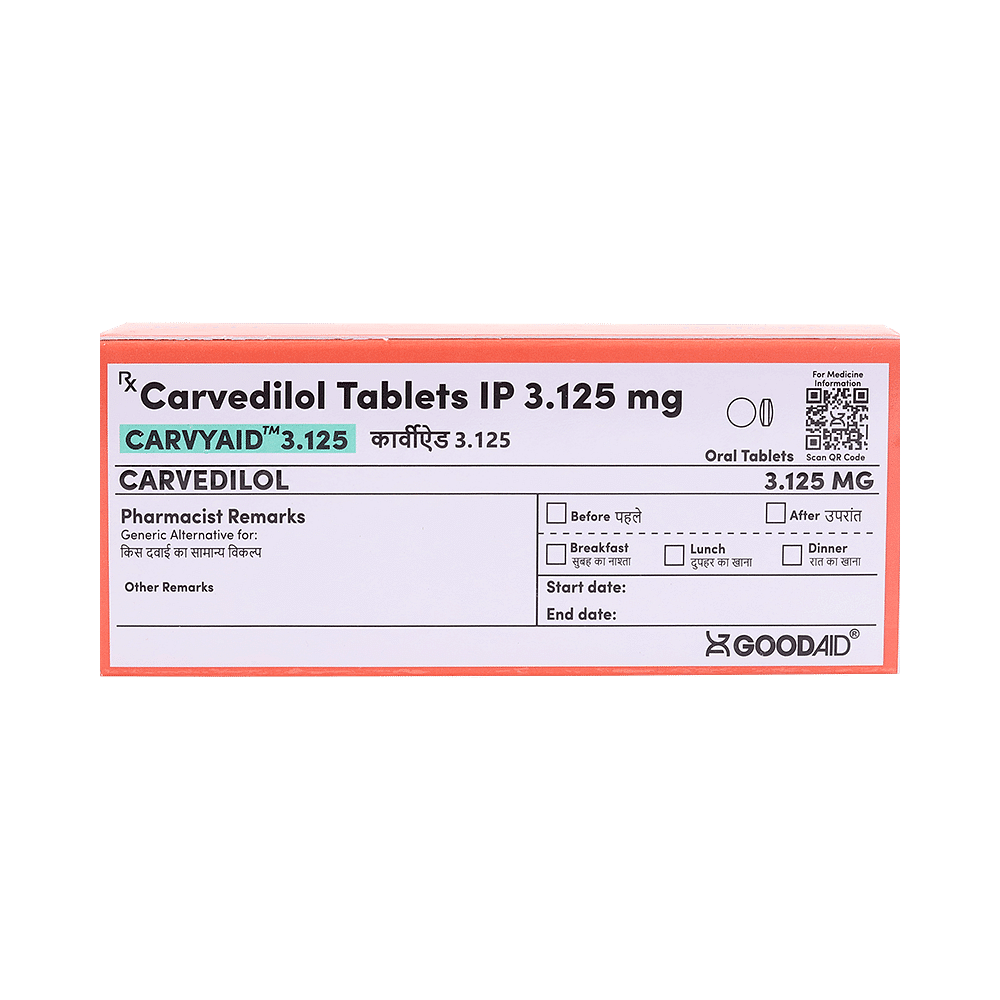
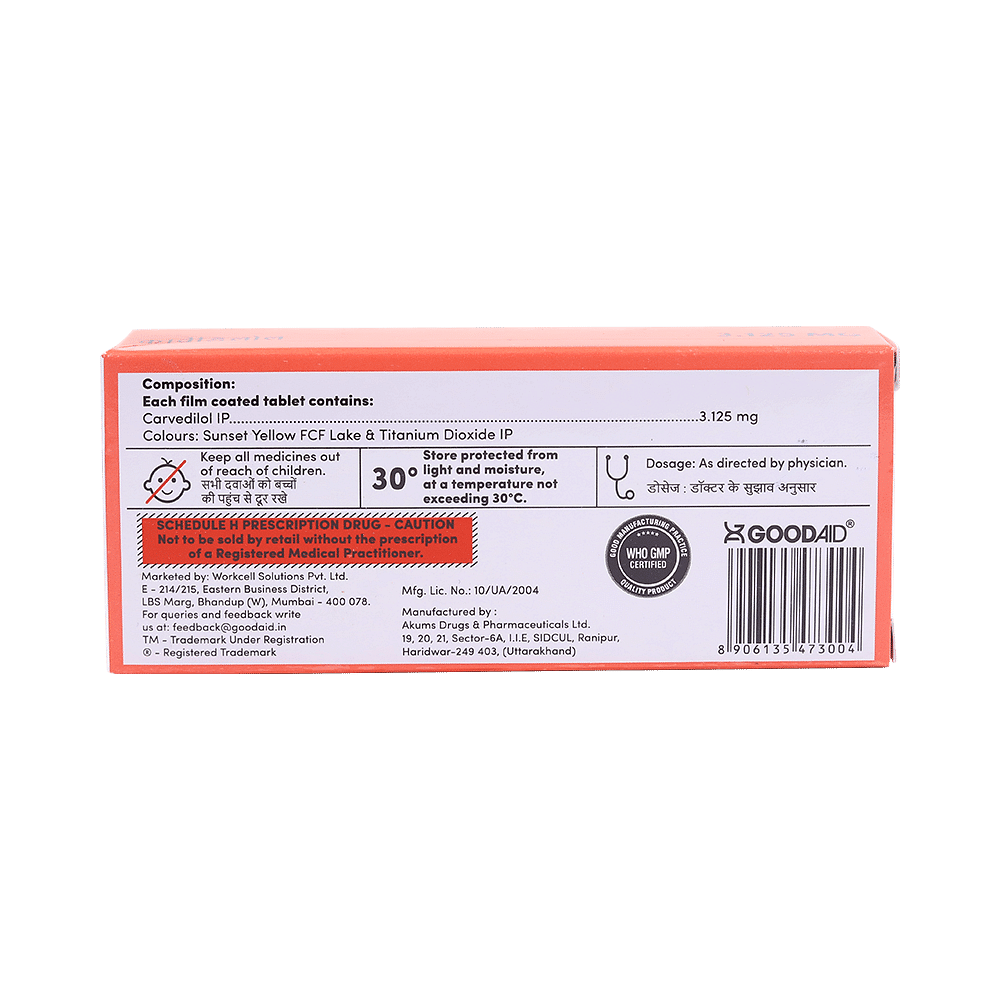
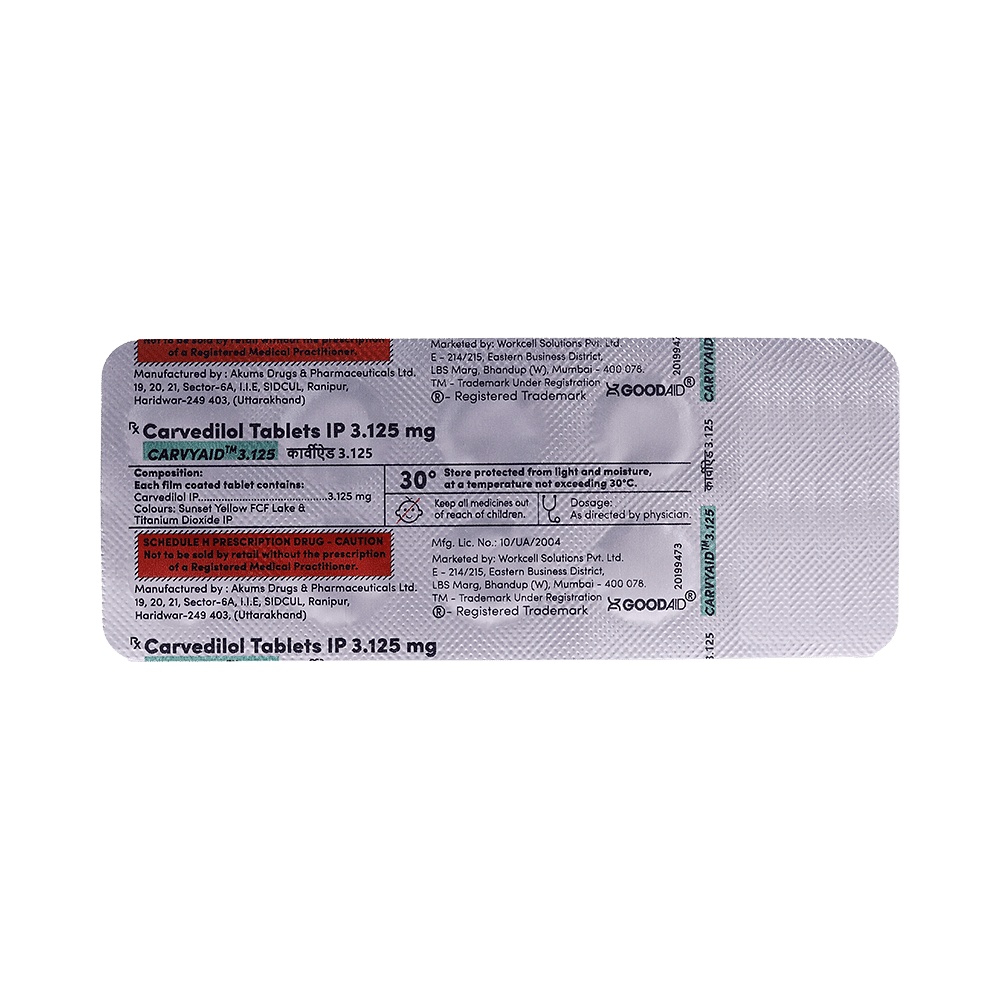
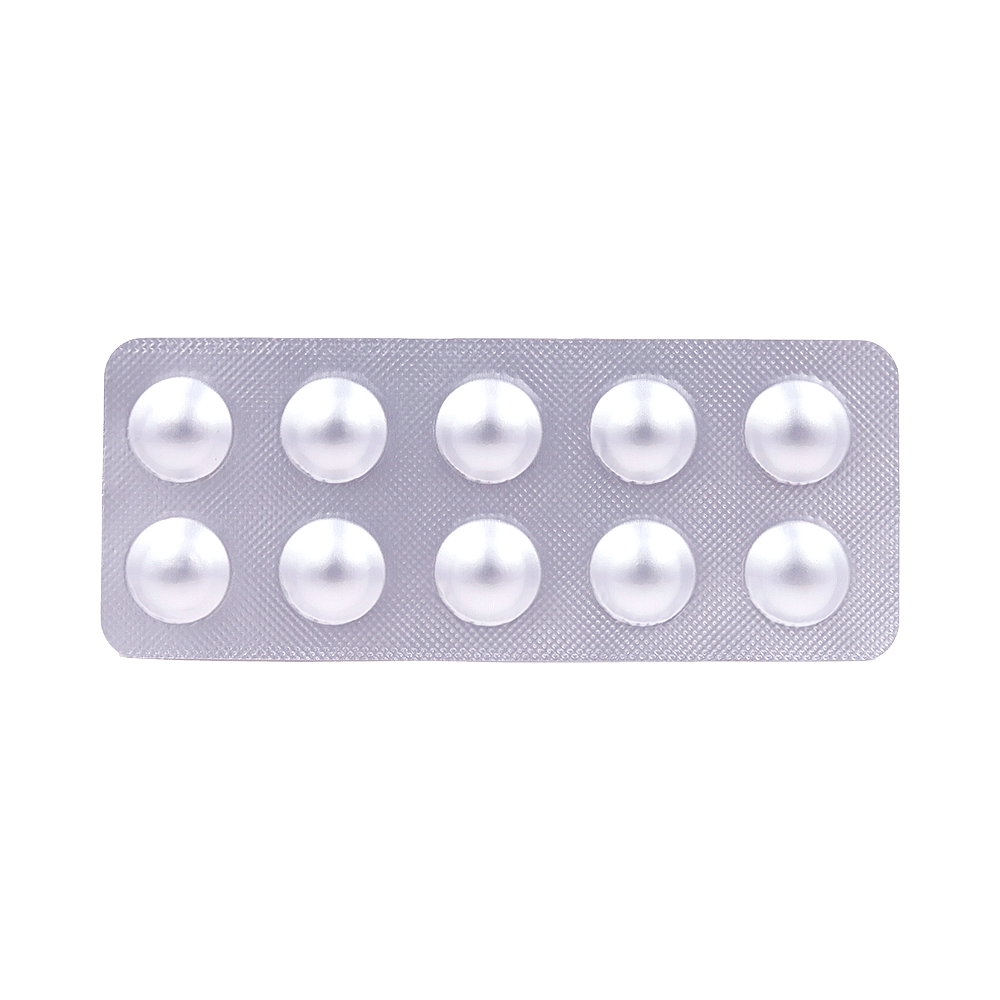
Carvyaid 3.125 Tablet
Manufacturer
Workcell Solutions Private Limited
Salt Composition
Carvedilol (3.125mg)
Key Information
Short Description
Carvyaid 3.125 Tablet is a medicine used to treat high blood pressure, heart-related chest pain (angina), and heart failure. It works by relaxing the blood vessels, so blood can flow more easily to the heart.
Dosage Form
Tablet
Introduction
Carvyaid 3.125 Tablet should be taken with food. You should take it in the dose and duration as advised by the doctor. It is important to take it even if you feel well or if your blood pressure is controlled. Do not stop this medicine without talking to the doctor as your condition could get worse. Making some changes in your lifestyle will help in improving your condition. These may include regular exercise, losing weight, smoking cessation, reducing alcohol intake, and reducing the amount of salt in your diet as advised by your doctor. This medicine is tolerated well by most patients but it may have a few side effects. These include dizziness, headache, breathlessness, and tiredness. Let your doctor know if these side effects bother you or do not go away. Before taking this medicine, let your doctor know if you have any heart or kidney diseases. Pregnant or breastfeeding mothers should also consult their doctor before taking this medicine.
Directions for Use
Take this medicine in the dose and duration as advised by your doctor. Swallow it as a whole. Do not chew, crush or break it. Carvyaid 3.125 Tablet is to be taken with food.
How it works
Carvyaid 3.125 Tablet is an alpha and beta blocker. It works by slowing down the heart rate and relaxing blood vessels which makes the heart more efficient at pumping blood around the body.
Quick Tips
It should be taken with food. Check your blood pressure 1 week after starting Carvyaid 3.125 Tablet and inform your doctor if it has not improved. Do not drive or do anything requiring concentration until you know how it affects you. It is best to avoid drinking alcohol while taking Carvyaid 3.125 Tablet as it may make the side effects worse. Do not stop taking Carvyaid 3.125 Tablet suddenly as it can cause your blood pressure to rise suddenly thereby increasing the risk of heart attack and stroke.
Related Medicines
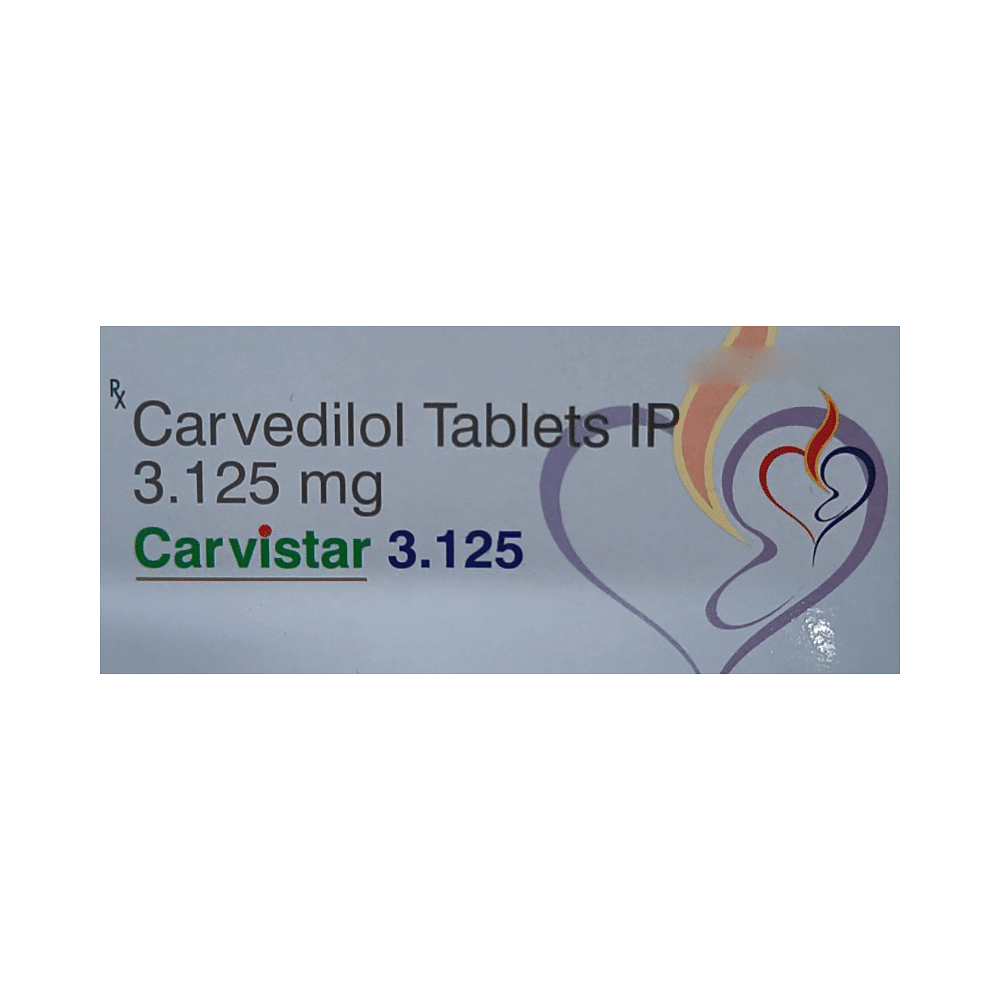
Carvistar 3.125 Tablet
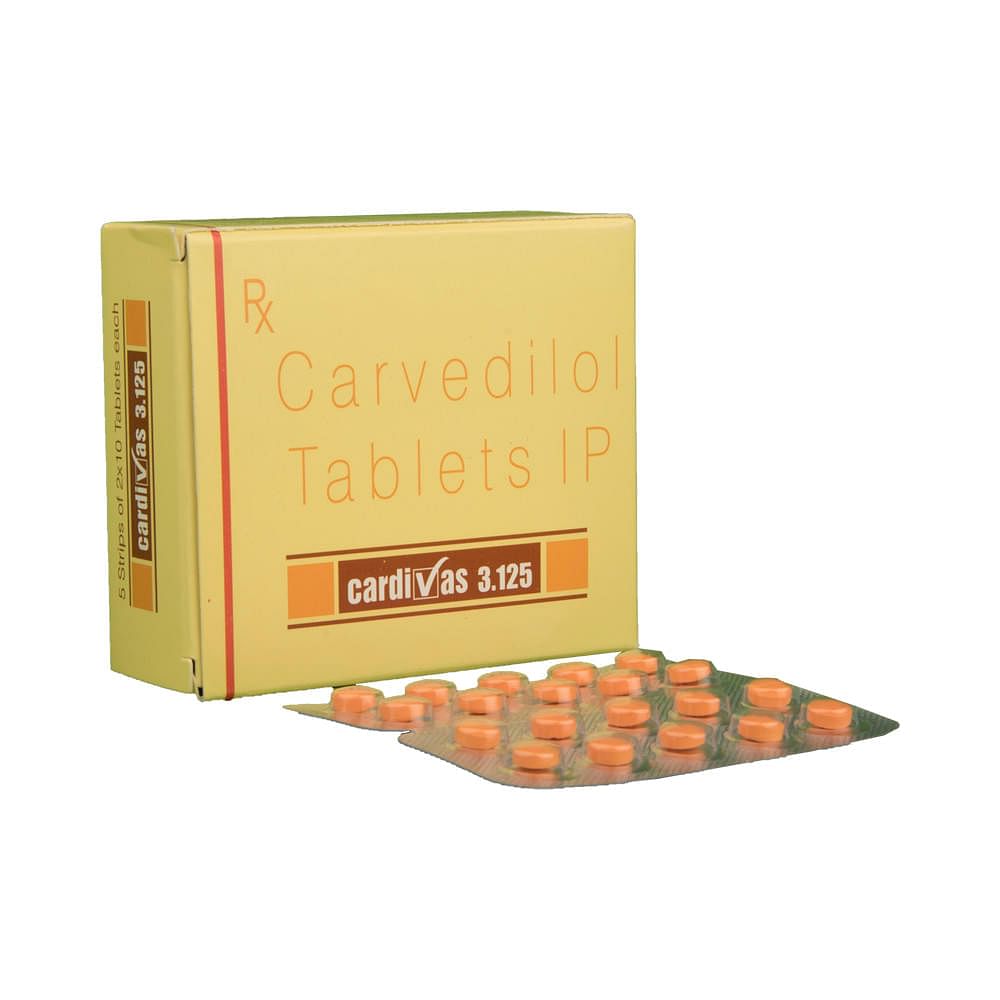
Cardivas 3.125 Tablet
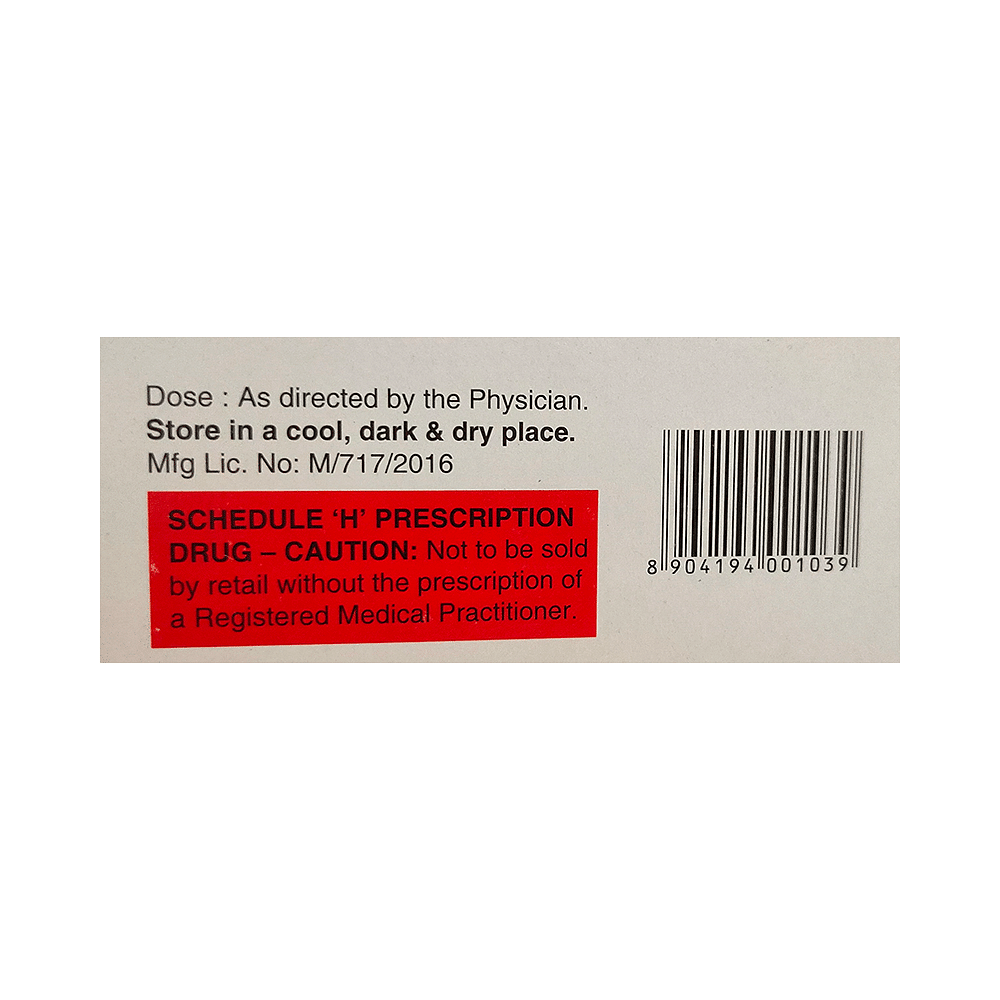
Carca-3.125 Tablet
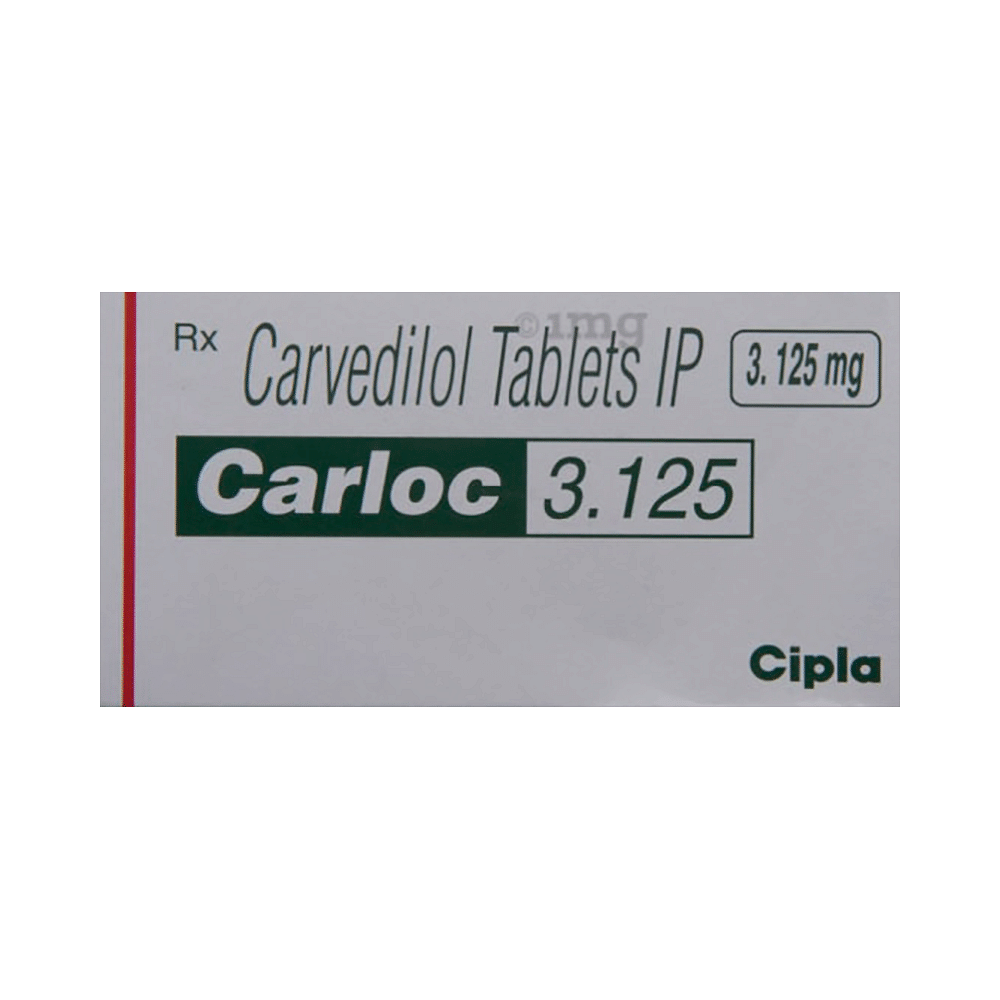
Carloc 3.125 Tablet
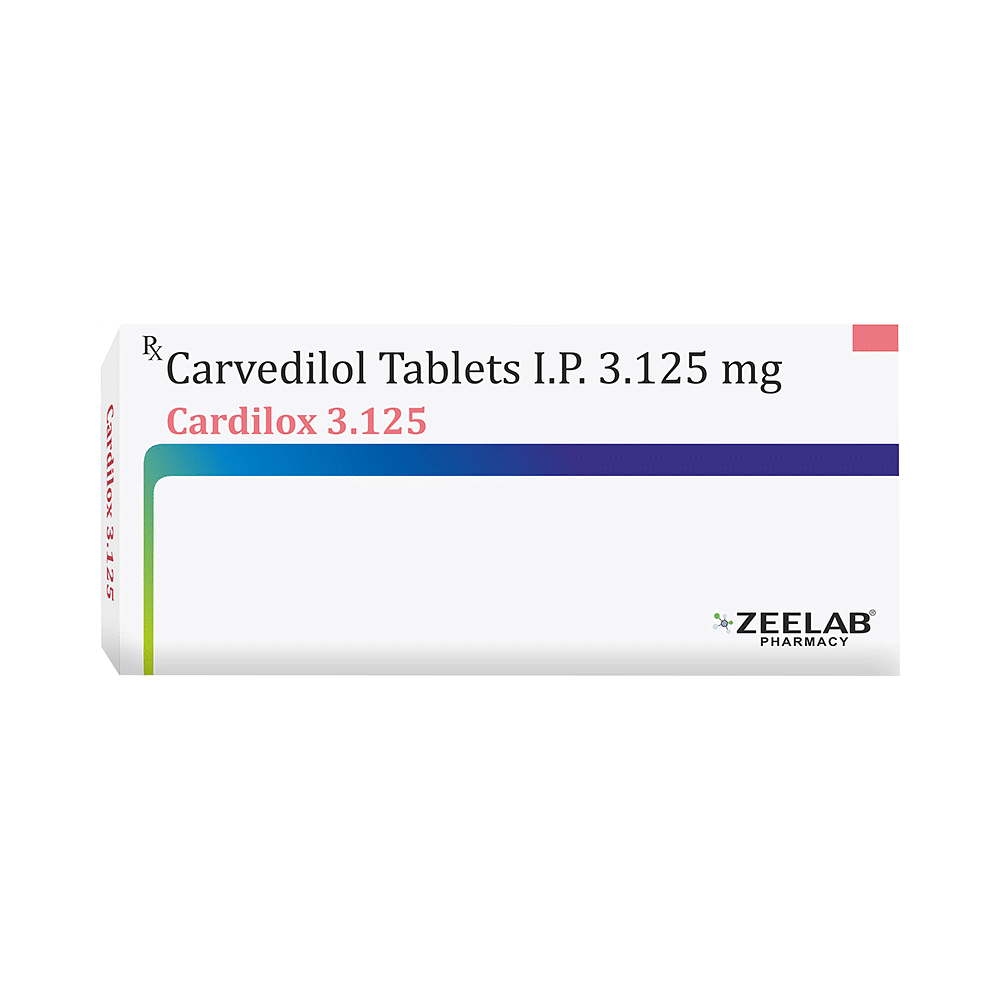
Cardilox 3.125mg Tablet

Carvicard 3.125mg Tablet

Carvefine 3.125mg Tablet

Caditone 3.125mg Tablet

Carvedil 3.125mg Tablet

Carvefine 3.125mg Tablet
Frequently asked questions
What happens when you stop taking Carvyaid 3.125 Tablet?
Carvyaid 3.125 Tablet should be taken regularly as prescribed by your doctor. Suddenly stopping it may cause chest pain or heart attack. Your doctor may slowly lower your dose over time before completely stopping it, if necessary.
Does Carvyaid 3.125 Tablet make you tired?
Yes, Carvyaid 3.125 Tablet can cause tiredness and dizziness, which often occur initially when starting treatment or when the dose is increased. If you experience these symptoms, avoid driving or operating machinery.
Can Carvyaid 3.125 Tablet cause weight gain?
Yes, weight gain is a common side effect of Carvyaid 3.125 Tablet. However, it may not occur in everyone. If you experience weight gain or difficulty breathing while taking this medicine, talk to your doctor immediately.
Can Carvyaid 3.125 Tablet cause kidney failure?
Use of Carvyaid 3.125 Tablet in patients with heart failure can rarely lead to deterioration of kidney function. However, it may increase the risk of kidney failure in people with low blood pressure (systolic blood pressure less than 100 mmHg), hardening of the arteries and/or a history of heart disease, or pre-existing impaired kidney function. It's crucial for these patients to be closely monitored during treatment with Carvyaid 3.125 Tablet. However, it is important to note that kidney functions often return to baseline when Carvyaid 3.125 Tablet is stopped.
Can a diabetic patient take Carvyaid 3.125 Tablet?
Yes, a diabetic patient can take Carvyaid 3.125 Tablet under the supervision of their doctor. It's important to monitor blood glucose levels regularly during and after taking this medication. While it may not significantly impact blood glucose levels for patients with well-controlled diabetes, remember that beta-blockers like Carvyaid 3.125 Tablet can mask symptoms of hypoglycemia (low blood sugar), such as an increased heartbeat or palpitations. In addition, Carvyaid 3.125 Tablet may worsen hyperglycemia (high blood glucose) in patients with heart failure and diabetes. Therefore, regular blood glucose monitoring is vital.
Can I take Carvyaid 3.125 Tablet on an empty stomach?
It's generally recommended to take Carvyaid 3.125 Tablet with food as it helps to decrease the rate at which the medicine gets absorbed in the body, potentially reducing the risk of orthostatic hypotension (low blood pressure).
What are the serious side effects of Carvyaid 3.125 Tablet?
Carvyaid 3.125 Tablet may cause serious side effects such as fainting, shortness of breath, weight gain, swelling in arms, hands, feet, ankles, or lower legs. Some patients may also experience chest pain, slow or irregular heartbeat, rash, hives, itching, and difficulty breathing and swallowing. If you experience any of these symptoms, contact your doctor immediately.
What if I take more than the recommended dose of Carvyaid 3.125 Tablet?
Taking more than the recommended dose of Carvyaid 3.125 Tablet may cause slow heartbeat, dizziness, fainting, difficulty breathing, vomiting, and loss of consciousness or seizures. Seek immediate medical help from your doctor in a nearby hospital.
Who should not take Carvyaid 3.125 Tablet?
Carvyaid 3.125 Tablet should be avoided if the patient has severe heart failure and is hospitalized in the intensive care unit or requires certain intravenous medications that support circulation (inotropic medications). Additionally, it's important to avoid Carvyaid 3.125 Tablet in people with asthma or other breathing problems, a slow heartbeat or irregular heartbeat, liver problems, and allergies to Carvyaid 3.125 Tablet.


